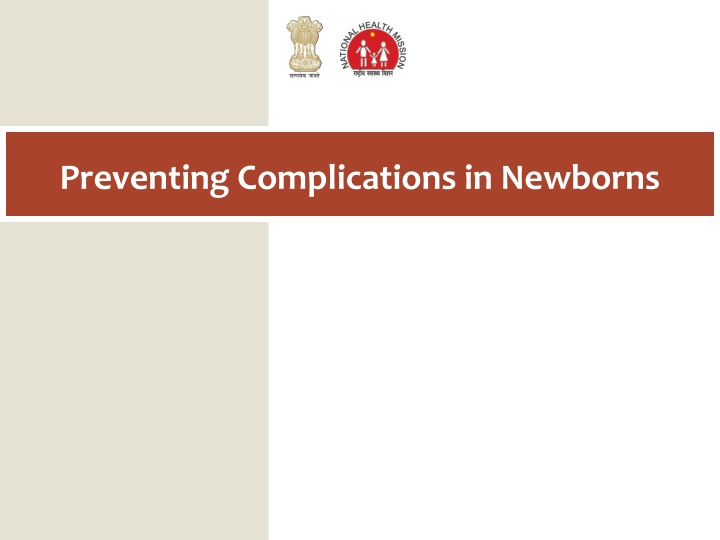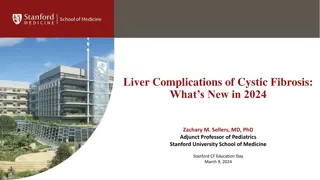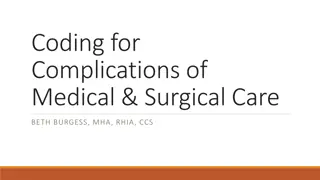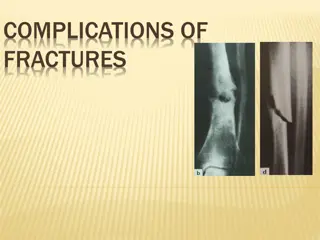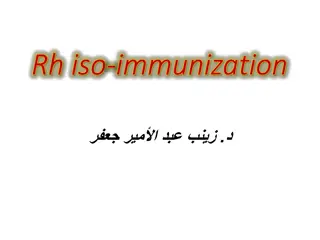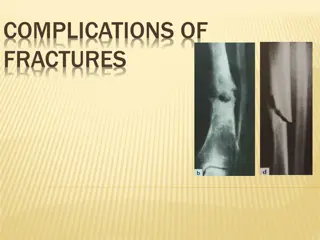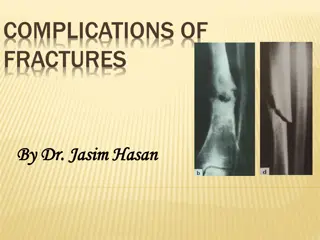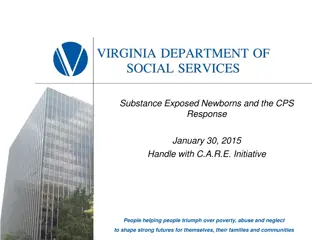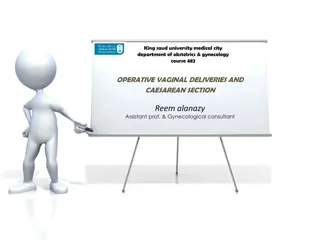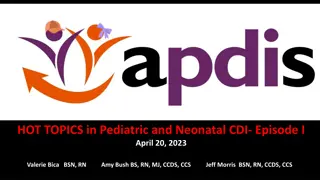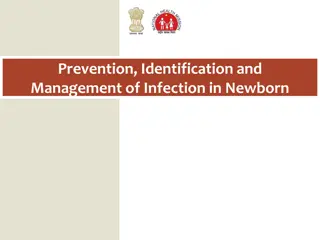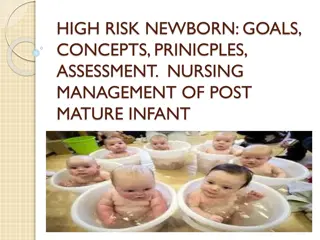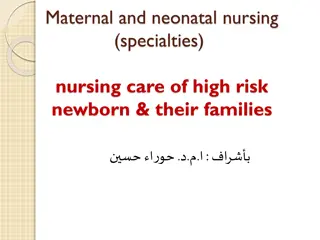Preventing Complications in Newborns: Tips and Strategies
Learn effective ways to prevent common complications in newborns, such as hypothermia, infection, and breathing difficulties. Discover practical tips for maintaining the baby's health and well-being during the crucial early stages, including measures to prevent hypothermia, infection, and breathing difficulties. Key emphasis is placed on the importance of early initiation of breastfeeding, maintaining cleanliness, and providing essential care to both the newborn and the mother.
Download Presentation

Please find below an Image/Link to download the presentation.
The content on the website is provided AS IS for your information and personal use only. It may not be sold, licensed, or shared on other websites without obtaining consent from the author.If you encounter any issues during the download, it is possible that the publisher has removed the file from their server.
You are allowed to download the files provided on this website for personal or commercial use, subject to the condition that they are used lawfully. All files are the property of their respective owners.
The content on the website is provided AS IS for your information and personal use only. It may not be sold, licensed, or shared on other websites without obtaining consent from the author.
E N D
Presentation Transcript
Learning Objective By the end of this session, learners will be able to: Describe the ways to prevent hypothermia, asphyxia and infection in the newborns 2
Tips for Preventing Hypothermia in Newborns Maintain temperature of labour room at around 25-28 0C Dry the baby immediately after birth and wrap the baby in a pre- warmed towel Regularly monitor the temperature of the baby. Temperature below 36.5 0C is a cause of concern In case new-born resuscitation is required, always perform it under a heat source i.e., radiant warmer Keep the baby in skin to skin contact with mother as long as possible Initiate breast feeding as early as possible Keep the baby adequately covered (cap, socks, etc.) Postpone the bathing of baby for at least 24 hours and at least for seven days for preterm and LBW babies In case there is need for transportation, maintain warmth of the baby 3
Tips for Preventing Infection in Newborns Appropriately manage maternal infections and use prophylaxis wherever needed Use of Partograph Do not do un-necessary PV examination Maintain Six Cleans during delivery Dry cord care Avoid unnecessary interventions for the baby like routine suctioning of every newborn Perform hand hygiene every time before handling the baby Early initiation of breast feeding and exclusive breast feeding, avoid pre-lacteal feeds 4
Tips for Preventing Breathing Difficulties in Newborns Monitoring the labour progress through plotting of partograph Emotional support with birth companions Use of ANCS in pre-term births Appropriate management of pre-eclampsia/eclampsia Avoid un necessary augmentation of labour Maintain hydration of mothers at all times Allow mother to assume left lateral position during labour Ask mother to push only during contractions Ask mothers take deep breaths in between contractions Do not apply fundal pressure during labour 5
Key Messages Hypothermia in newborns can be prevented by simple practices to ensure immediate drying and keeping baby warm Prevent asphyxia by being alert to the findings recorded on the partograph , identifying Foetal distress early, managing maternal complication like PE/E and providing supportive care to the mother during labour and delivery Encourage early initiation of exclusive breastfeeding and avoid pre-lacteal feeds, keep the cord dry to prevent infection after birth of the baby. 6
